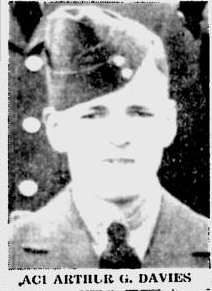
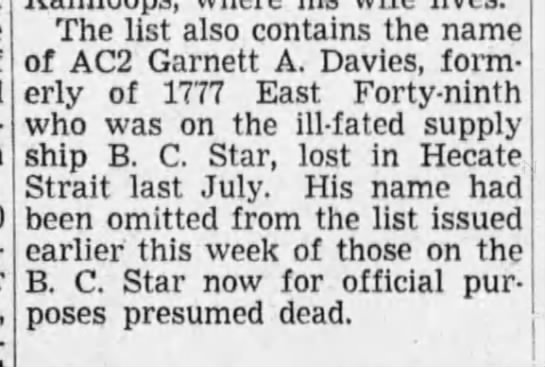
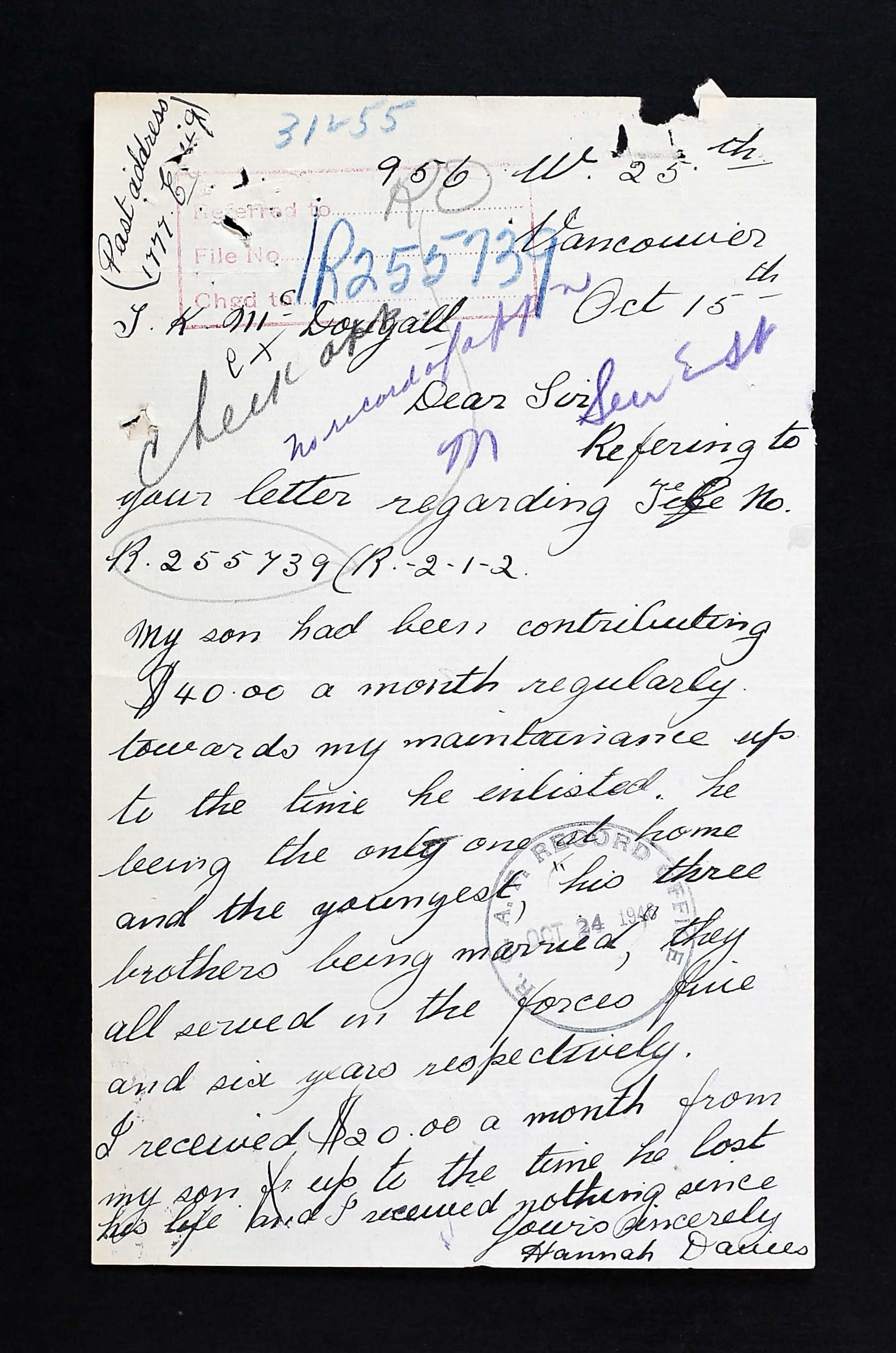
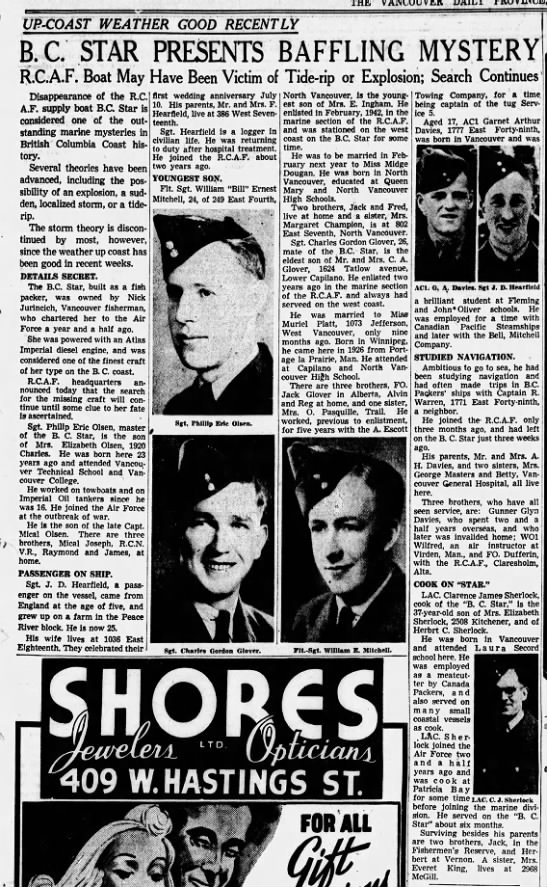
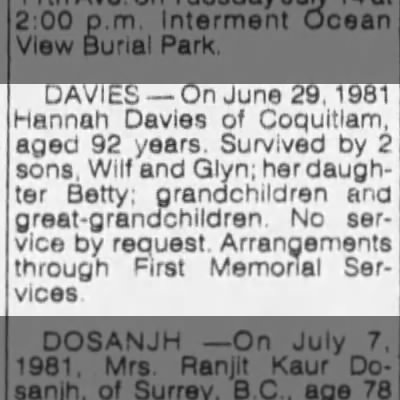
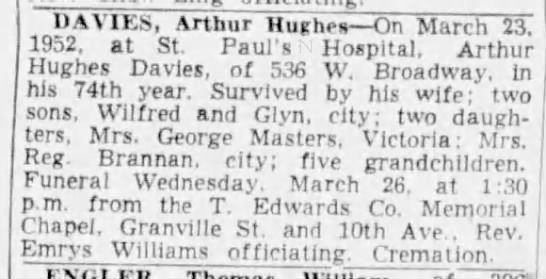
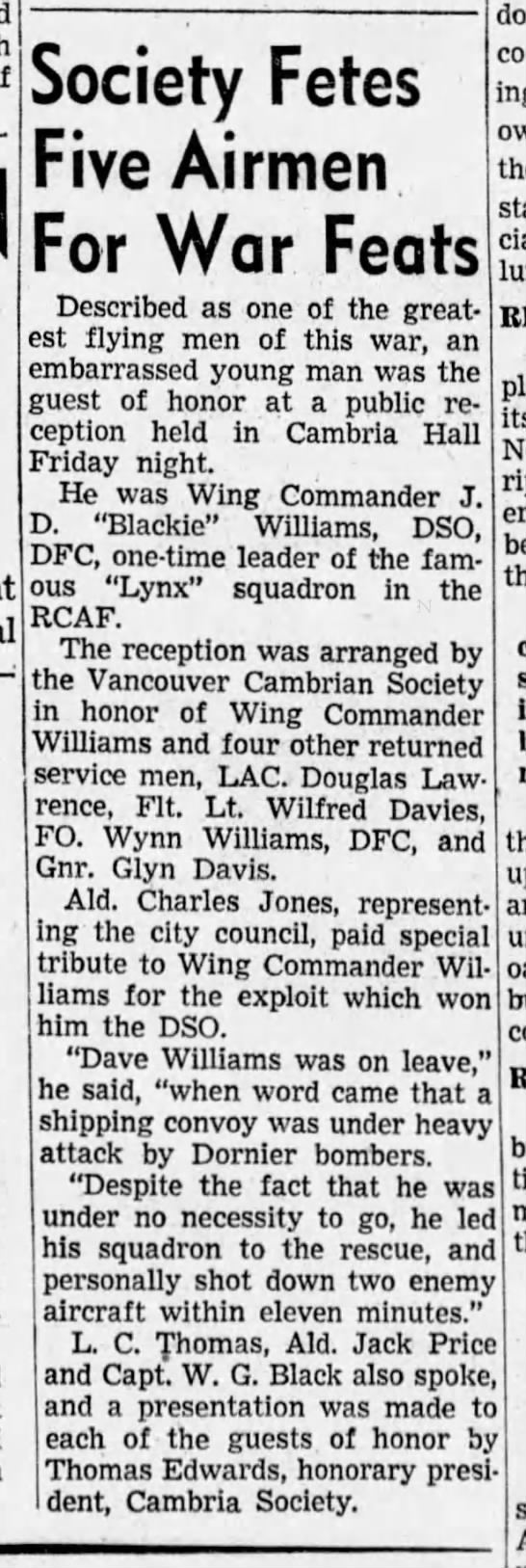
November 20, 1925 - July 24, 1943







Garnett Arthur Davies was the son of Arthur Hughes Davies (1878-1954), baker, and Hannah (nee Rees) Davies (1888-1981) of Vancouver, British Columbia. His parents were originally from Wales. He had three brothers, Wilfred Rees Davies (1908-1993), RCAF, Dufferin Owen Davies (1914-1948), also of the RCAF, plus Gunner Thomas Glyn Davies (d. 2001), who had been discharged from the Canadian Army due to tuberculosis in England. He also had two sisters: Mrs. Phyllis Masters and Betty Margaret Davies, both of Vancouver. By June 1944, his parents had separate addresses in Vancouver. In 1936, Mr. Davies was involved in Welsh choirs. Duff died in an accident. Wilf was an industrial pilot after the war until his retirement.
He was also known as Arthur G. Davies, as noted on some of his documents, signing his name as Arthur. An alternate spelling of his name was Arthur Garnet Davies.
He had been a seaman prior to his enlistment on May 24, 1943. On his personal record dated May 24 1943: Grade 9 education, BC general. Motor boat crewman. Civil experience: seaman, CPR, Vancouver, BC; driver, Ed Motors, Vancouver; seaman, BC Packers. Seaforth cadets. Sports: baseball, rugby, baseball, bowling. Model airplanes. Elementary knowledge of gas engines, some diesel. Desires ground. 67 ¾” tall, 125 pounds. Manner and appearance satisfactory. Recommended for motor boat crewman.” Garnett’s previous monthly income was $100. “This candidate has been employed on Pacific Coast for past three years as main occupation. Understands compass. Recommended by former employers. Should make a good material for training in Marine Section. Keen, intelligent lad.” Arthur had brown eyes and brown hair, with a medium complexion. “Recommended for enlistment as Motorboat Crewman “C” being a good type, having had approximately nine months of useful seafaring experience and being 1 ½ years in the Seaforth Cadets.”
Two months after his enlistment, the ship on which he was working, the BC Star, sunk. Theories were that the load was too heavy, a Japanese submarine torpedoed it, or it hit a mine. (See links below for further details of the story.)
On an Estates Branch form, “Previously reported ‘missing’ July 24, 1943. Life rafts only. Wreckage found. Presumed vessel sunk. Marine operations RCAF vessel BC Star left Vancouer, BC, 0100 hours. Now ‘presumed dead’ July 24 1943 for official purposes.”
On October 15, 1944, Mrs. Davies wrote to the RCAF. “My son had been contributing $40.00 a month regularly towards my maintenance up to the time he enlisted. He being the only one at home and the youngest, his three brothers being married, they all served in the forces, five and six years respectively. I received $20.00 a month from my son up to the time he lost his life and I received nothing since.”
Arthur took out a $1000 life insurance policy through London Life, making his mother his beneficiary. A letter dated May 1944 to G/C H. R. Stewart, Director of Intelligence, RCAF, Ottawa from E. W. Kennedy, Division Head, Ordinary & Industrial claims stated, “In order to assist in establishing our liability under the above policy, it would be appreciated if you could give us certain information respecting the deceased’s travels during the six months preceding his death. Our contract contains a War Clause which limits the amount payable in the event that death occurs outside the Home Areas, which we interpret as extending three miles beyond our shores, and also in the event that the insured has been outside the Home Areas withing six months prior to death. Our interest is to determine whether or not the insurer’s duties have taken him outside of territorial waters (beyond the three-mile limit). Please do not trouble to give us any detailed amount of numerous trips but merely an indication of travel in general beyond the Home Areas.”
In October 1955, a letter from W/C W. R. Gunn was mailed to Mrs. Davies informing her that Arthur’s name would appear on the Ottawa Memorial as he had no known grave.
LINKS: